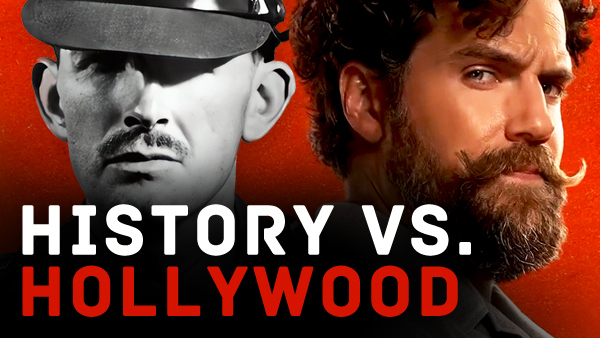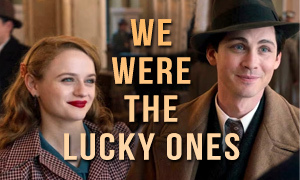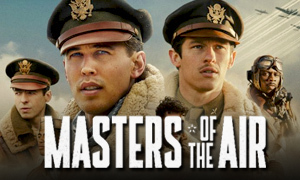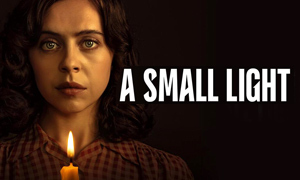War Dogs: History vs. Hollywood
| REEL FACE: | REAL FACE: |
Miles Teller
Born: February 20, 1987 Birthplace: Downingtown, Pennsylvania, USA | David Packouz
Born: February 16, 1982 Birthplace: St. Louis, Missouri, USA |
Jonah Hill
Born: December 20, 1983 Birthplace: Los Angeles, California, USA | Efraim Diveroli
Born: December 20, 1985 Birthplace: Miami Beach, Florida, USA |
Bradley Cooper
Born: January 5, 1975 Birthplace: Philadelphia, Pennsylvania, USA | Heinrich "Henri" Thomet
Described as a blond-haired, light-blue-eyed Swiss arms dealer |
Kevin Pollak
Born: October 30, 1957 Birthplace: San Francisco, California, USA | Ralph Merrill
Born: May 8, 1943 |
Gabriel Spahiu
Born: March 21, 1968 Birthplace: Bucharest, Romania | Kosta Trebicka
Born: February 9, 1958 Birthplace: Albania Death: September 12, 2008, Albania (car accident / suspicious death) |
How old were Efraim Diveroli and David Packouz when they reunited?
Efraim Diveroli was 19 in November 2005 when he enlisted the help of his old pal David Packouz, who was 23 at the time. The movie falsely states that they're the same age. At the time of filming, the actors were also older than their real-life counterparts were when the events unfolded. Jonah Hill was 31 and Miles Teller 28. The real War Dogs, Diveroli and Packouz, had known each other from hanging out and smoking pot during the days when they both attended Beth Israel Congregation, the largest Orthodox synagogue in Miami Beach. -Daily Mail Online
Did the real David Packouz work as a massage therapist?
Yes, the War Dogs true story confirms that David Packouz had indeed been working in Miami as a massage therapist before reuniting with high school friend Efraim Diveroli. Similar to what is seen in the movie, Packouz also sold sheets that he bought from textile companies in Pakistan. However, in real life, he sold them to distributors that supplied nursing homes, not directly to the homes. It was a mildly successful venture, one he didn't struggle with as much as his character does in the movie. -Rolling Stone
Had Efraim Diveroli really been shipped off to L.A. to live with his uncle in the tenth grade?
Yes, but what the War Dogs movie doesn't explain is that Diveroli left Miami mainly due to the fact that he was kicked out of high school in the ninth grade. He then went to work for his uncle in Los Angeles. -Daily Mail Online
Did Efraim really make "a bunch of money" selling weapons with his uncle in Los Angeles?
Yes. After getting kicked out of school, Efraim worked with his uncle in Los Angeles purchasing seized guns and selling them back to law enforcement. Weapons dealing was the family business. Efraim's father was a domestic arms dealer in the U.S. Two years later, Efraim branched out on his own, taking over a shell company his dad had incorporated, AEY Inc. To help secure weapons deals, he pretended to have a much larger company behind him, when in reality it was just him. "I don't care if I have the smallest d*** in the room, as long as I have the fattest wallet," Efraim once said.
Blagging his way to $1 million in business by 2004, Efraim became a millionaire at 18, largely because he had been able to beat out big companies for U.S. military arms contracts. At first, Efraim concentrated mainly on the crumbs, outbidding larger companies for the smaller deals that didn't mean as much to them (including deals for items like helmets and ammunition for U.S. Special Forces). It also helped when then-President George W. Bush changed the rules of the contracts so that a certain percentage of them had to be awarded to small businesses like AEY. According to Efraim's website, between 2003 and 2008, AEY was awarded and executed more than 150 contracts with the United States Government. -Daily Mail Online
Did Efraim Diveroli fire off a machine gun in the street after a dealer didn't follow through on a marijuana deal?
No. In the movie, Diveroli (Jonah Hill) gives $300 to a drug dealer for weed. The drug dealer takes his money, then ignores him and doesn't give him the weed. The dealer then flashes his pistol at Diveroli to intimidate him and make him leave. Diveroli goes to his trunk and returns with a machine gun that he fires off in the air, causing the drug dealer and his friends to flee for their lives. It makes for a good movie moment but unfortunately, it never happened in real life.
Was there really a website where the Department of Defense posted weapons contracts for public bidding?
Yes. While fact-checking War Dogs, we not only learned that this is true, but that it still exists. As odd as it seems, the website that they refer to in the movie as "Ebay, but for war" is real. The site, FedBizOpps (fbo.gov), currently has over 25,300 federal contracts posted that companies can bid on. You can go there right now and browse through the postings. According to the law, the Department of Defense was required to open up each contract to public bidding. In this CNBC David Packouz interview, he explains how they used the website to work the system.
At the time, the government was in part looking for private brokers to act as proxies, so that they could acquire weapons from Eastern Europe to arm militias in Iraq and Afghanistan. Eventually, the deal to supply the Afghan National Army was posted on FedBizOpps on July 28, 2006 with the title "A Solicitation for Nonstandard Ammunition". -DailyMailOnline
Is Miles Teller's character's girlfriend Iz based on a real person?
Yes. The War Dogs true story reveals that Miles Teller's character's girlfriend Iz (Ana De Armas) was inspired by David Packouz's real-life Spanish girlfriend at the time, a fellow massage therapist who Guy Lawson refers to in his book as "Sara." The pregnancy and daughter that David Packouz (Miles Teller) has with Iz in the film is based on his daughter Amabelle Jane, born in 2007. Like in the movie, Packouz and his girlfriend did break up over his obsession with his job, and after things imploded at AEY, they got back together and got married. -Arms and the Dudes
Had the government been under pressure to level the playing field after being scrutinized for giving no-bid contracts to big companies?
Yes. One of the companies that was at the heart of the controversy is Halliburton, which then-Vice President Dick Cheney had been Chairman and CEO of from 1995 to 2000. KBR Inc., which was spun off from Halliburton, was given $39.5 billion in Iraq-related contracts as of 2013, often without having to compete with other firms for the bid. As a result, the prices stayed high and the government (taxpayers) paid more. Pressure to level the playing field played a role in smaller companies like AEY being allotted a share of the arms deals. -International Business Times
President Barack Obama made campaign promises to rein in the practice of granting favored companies military contracts without having to bid on them. His promises turned out to be empty ones. The problem worsened under the Obama administration, growing by 9% in 2012. -Washington Post
Did any other friends work with David and Efraim who are not shown in the movie?
Yes. In researching the War Dogs true story, we learned that a third friend, 24-year-old pot dealer Alex Podrizki, was left out of the film. Alex was sent to be the point man in Albania, not David Packouz. He is also the one who discovered that the ammo was Chinese and packed in Chinese crates. Guy Lawson's article-turned-book on which the movie is based references the three friends in its title, Arms and the Dudes: How Three Stoners from Miami Beach Became the Most Unlikely Gunrunners in History. -Rolling Stone
Is Kevin Pollack's character, Ralph Slutsky, based on a real person?
Yes. Fact-checking War Dogs revealed that Kevin Pollack's Ralph Slutsky character was inspired by Ralph Merrill, who invested his life savings in AEY. Unlike in the film, he was not Jewish and did not own 14 dry cleaning businesses across Miami. Ralph Merrill was a Mormon machine-gun manufacturer from Utah who had worked for Efraim Diveroli's father. -Rolling Stone
Did Efraim Diveroli and David Packouz move into the same apartment complex in Florida?
Yes. They both moved into the Flamingo, a high-class apartment block in South Beach, Florida. It was home to models, and conveniently, their drug dealer Raoul had a place there too. -Daily Mail Online
Was the real War Dogs experience as action-packed as the movie?
No. The film exaggerates the degree to which David Packouz and Efraim Diveroli were in dangerous situations abroad. Most of their risky dealings happened from behind a computer screen. They did travel abroad to check out foreign arms stockpiles and gun shows, but as far as coming under fire while transporting arms across enemy territory, it didn't happen. They never navigated Iraq's Triangle of Death, nor did they ever visit Iraq. In fact, in real life they failed to deliver the Beretta pistols and defaulted on the deal. -NPR.org
Was Efraim really an expert liar who could morph his personality?
Yes, Efraim Diveroli was indeed good at acting. He would sometimes adopt a baritone voice to sound older on the phone. Also, the scene in the movie where a client in Iraq threatens to cancel a contract and Efraim makes up a story that losing the contract will cause him to lose his business, his house, and his wife, is based in fact. The fib worked in real life too and Efraim saved the contract. "Money was all he cared about," David Packouz would later say of Efraim. "Literally. He didn't talk about sports or politics or culture. He would do anything to make money. According to Guy Lawson's book, Efraim saw himself as a real-life Lord of War, a reference to the Nicolas Cage movie of the same name based on arms dealer Viktor Bout. -Daily Mail Online
Were David and Efraim really stoners?
Yes. The real War Dogs would often smoke pot as they pursued and attempted to secure federal contracts from their one-bedroom Miami Beach apartment. "It was surreal. Here I was dealing with matters of international security, and I was half-baked," says David Packouz. -Daily Mail Online
Did they do cocaine in addition to pot?
Yes. In addition to passing a bong back and forth as they worked or relaxed, they sometimes took hits of cocaine from a plastic bullet-shaped vile that Efraim Diveroli carried with him. They partied at clubs while high and Efraim slept with prostitutes. -Rolling Stone
Did they really walk up to women and ask "how much?"
Yes. In the War Dogs movie, Jonah Hill's Efraim is shown walking up to a woman at a club and bluntly asking her if she wants to make some money by fast-forwarding to their third date and pleasuring him in his car. That scene doesn't work out so well for Hill's character, but the real Efraim handled himself with a similar brashness, reportedly walking up to women and asking, "How much?" or "Everybody's got a price, so what's yours?" He'd hit on them right in front of their boyfriends. -Daily Mail Online
Is Bradley Cooper's character, Henry Girard, based on a real person?
Yes. The movie's Henry Girard character was inspired by Heinrich "Henri" Thomet, a well-connected Swiss arms dealer and one of the founders of Brügger & Thomet AG, a Swiss defense supplier. He had got in trouble when Amnesty International accused him of smuggling arms out of Zimbabwe, which was a breach of U.S. sanctions. He was placed on a U.S. "watch list" and was being investigated by U.S. law enforcement for shipping weapons from Serbia to Iraq. David Packouz and Efraim Diveroli did meet Henri at an arms trade show, but it was at Eurosatory in Paris, not at Vegas X. No known photos exist of Heinrich Thomet, but Guy Lawson's Rolling Stone article describes him as having blond hair and light blue eyes. "He was one of the best middlemen in the business, a real-life Lord of War," says Packouz.
How big was the Afghan Deal for Efraim and David?
During our investigation into the War Dogs true story, we were able to verify that the Department of Defense contract that Efraim and David landed in 2007 was worth $298 million for the purpose of supplying ammunition to the Afghan National Army. According to the contract, the ammunition was to be "serviceable without qualification," a detail that Efraim and David interpreted too loosely. The details of the contract included the procurement of 100 million rounds of AK-47 ammunition as well as staggering amounts of rifles, rockets, and 100,000 grenades. -Daily Mail Online
Do the letters in the name AEY stand for something?
In the movie, Efraim (Jonah Hill) becomes angry at an employee who criticizes the letters in the name AEY for not standing for anything. In real life, the initials do mean something. The company had at first been a shell company started by Efraim's father. The letters in the name are the initials of his children, Aaron, Avigail, Avrohom, Efraim and Yeshaya. -MiamiNewTimes.com
Did Packouz and Diveroli really smoke a joint before a meeting with military supply chiefs?
Yes. This was pulled from Guy Lawson's Rolling Stone article. The journalist tells of how David Packouz and Efraim Diveroli smoked a joint in the parking lot before their due diligence meeting with U.S. military supply chiefs.
Did they really undercut their competition for the Afghan Deal by $53 million?
Yes. There $298 million bid undercut big-name competitors like Lockheed Martin and General Dynamics by about $53 million, which won them the contract. The government never gave an age limit specification for the ammo in the contract. As a result, AEY was able to source cheap ammo that was manufactured in 1966, in the era of the Vietnam War. Like in the movie, The New York Times got wind of this, in addition to rival companies who spread rumors that they (AEY) were drug dealers in over their heads. As they continued to find cheaper places to source the ammunition, their commission on the Afghan Deal rose to a hefty $85 million. -Daily Mail Online
The Afghan deal wasn't the first time AEY Inc. had operated dishonestly. In order to double his money on a deal, Efraim Diveroli once swapped high-end weapons for poorly made Korean copies. On another occasion, he sent the Iraqi Army poorer quality helmets than the helmets they'd paid for. -Mirror Online
Did Efraim Diveroli try to cut the real Henry Girard out of the deal after finding out Girard was ripping them off?
Yes. After Efraim Diveroli learned that Henri Thomet (renamed Henry Girard and played by Bradley Cooper in the movie) was charging them double the asking price just to be the broker on the deal, Diveroli tried to cut out Thomet. In real life, it was the owner of the box company, Kosta Trebicka (renamed Enver in the movie), who Diveroli contacted for help. Trebicka met with the Albanian defense minister to explain that if Henri Thomet was out of the deal, there would be more money for everyone else. What he didn't realize was that Thomet was giving off-the-books kickbacks to the Albanians. Siding with Thomet, the Albanians instead cut Trebicka out of the deal and gave the repackaging job to another company, one run by a friend of the prime minister's son. -Rolling Stone
Was David Packouz really kidnapped, shoved in a trunk, and roughed up by the real Henry Girard?
No. Henry Girard, whose real-life name is Heinrich "Henri" Thomet, never had his men kidnap David Packouz in Albania, put him in a trunk, and rough him up. In fact, David Packouz wasn't even the point man in Albania. That job went to Alex Podrizki, a third stoner friend who is not represented in the movie. The whole kidnapping scene that bookends the movie is Hollywood fiction. -Rolling Stone
Did the Albanian businessman who Efraim and David hired to repack the ammunition really inform on them?
Yes, Kosta Trebicka (renamed Enver in the movie) came forward and blew the whistle on the entire operation. However, it wasn't because Efraim Diveroli didn't pay him, which is true. It was because the Albanian government had cut him from the deal and replaced him. He was left with the tab for the workers he had hired and the boxes he had already printed. Listen to a phone conversation Kosta Trebicka recorded between himself and Efraim Diveroli. Upset, he also contacted The New York Times, who ran a front-page piece on AEY with the headline, "Supplier Under Scrutiny on Arms for Afghans." A tip off from a rival arms dealer who got wind of AEY's repackaging scheme had also helped to put AEY on the FBI's radar.
AEY Inc. hired Kosta Trebicka to manage the repacking of the ammo from wooden crates with Chinese markings into cardboard boxes, which would then be shipped to Afghanistan. Ever since the Tiananmen Square massacre in 1989, which saw the Chinese government violently squashing pro-democracy protests, U.S. federal law has prohibited the acquisition of Chinese munitions. Trebicka divulged the details of AEY's scheme to the Committee on Oversight and Government Reform. A short time later, the Albanian businessman died on a rural roadside not far from his car after what was ruled by the Albanians to be an "accident." -Rolling Stone
Did David Packouz and Efraim Diveroli really have a falling out?
Yes, but it wasn't because Diveroli tried to nudge Henri Thomet (played by Bradley Cooper as Henry Girard) out of the deal, which in the movie results in Packouz being roughed up by Girard's crew, making him furious at Diveroli. In reality, Packouz was upset because he had not been paid despite millions pouring into AEY. The real War Dogs did meet to negotiate, but with lawyers present, not in a diner with their business partner. They negotiated a deal, which in the end saw Packouz getting a fraction of the commission they had verbally agreed on. Packouz figured he'd use what he learned to start his own arms-dealing business to compete with Diveroli. He called it Dynacore Industries. -Rolling Stone
Was there really a mysterious death?
In the movie, the Albanian driver Bashkim (JB Blanc) goes missing, is never heard from again, and is presumed dead. In real life, it was Albanian businessman Kosta Trebicka, the cardboard-box manufacturer hired by AEY Inc. to repackage the ammo, who was found clinging to life on a rural Albanian roadside near his truck, which had flipped over. He died before the police and medical crews could arrive in time to save him. Some believe that Trebicka's death was not caused by an accident, but rather something more sinister given that he blew the whistle on the entire $298 million arms deal. He did so after the Albanian Defense Ministry removed him from the deal and replaced his company with one owned by a friend of the prime minister's son. This prompted him to begin speaking out against corruption in Albania.
While researching the real War Dogs story, we learned that Trebicka was also a witness to a related deadly blast at a munitions facility in the town of Gedric, which took the lives of 26 people, including children. Some believe he could have been killed to stop him from testifying about the blast. -NYTimes.com
What was David and Efraim's punishment for selling the illegal and aging ammunition to the U.S. Government?
As stated in the movie, Efraim Diveroli, who plead guilty in 2008, was charged with 71 counts of federal fraud and was sentenced to four years in prison. David Packouz also pled guilty and was placed under house arrest for seven months. "We were the Army's favorite contractors when we got the deal — poster boys for President Bush's small-business initiative," says Packouz. "We would have saved the government at least $50 million. We were living the American dream, until it turned into a nightmare." In addition to Packouz and Diveroli, a few of their associates were also charged with fraud in real life. Friend and accomplice Alex Podrizki (not depicted in the film) took a plea deal and was given ten months probation. -Rolling Stone
Does David Packouz have a cameo in the movie?
Yes, David Packouz's War Dogs cameo happens early in the film when Miles Teller's character is trying to sell bed sheets wholesale to a retirement home in South Florida. The real Packouz can be seen playing Blue Oyster Cult's "(Don't Fear) The Reaper" and is credited as "Singer at Hilldale." As for the real Efraim Diveroli, he doesn't have a cameo and refused to meet with actor Jonah Hill who plays him in the movie. -Fandango.com
How did the government not realize they were working with less-than-reliable potheads?
Journalist Guy Lawson's 2011 Rolling Stone article on which the movie was based actually focuses much more on the Pentagon's culpability, especially their lax specifications regarding the ammo and their failure to properly vet the company they were working with. AEY had in fact been placed on the State Department "watch list" after importing illegal firearms, but the list was never checked by the Pentagon. They also failed to take into consideration the bids AEY had previously defaulted on, which resulted in a less than stellar track record.
"They got a lot of it in," says Lawson of the real events depicted in the movie. "But you watch the end and you think it's about these [two] guys. It's not. It's about the system." The Pentagon had turned a blind eye to what private contractors like AEY were doing to acquire the arms. It was evident that the Pentagon knew AEY had been shipping Chinese-made ammunition to Afghanistan (it was indicated right there on the bullets), but the government was not charged in the case. Yet, a Pentagon investigation concluded that when the contract fell through, it led to mass shortages in the supply of ammo in Afghanistan in 2008. -LA Times
Did David Packouz go back to being a masseuse?
Yes. As stated in the War Dogs movie, Packouz went back to working as a masseur in Miami. He also makes music. He says that he regrets ever getting involved with Efraim Diveroli. -Daily Mail Online
Did the real Henry Girard give David Packouz a piece of his end on the Afghan Deal?
No. The briefcase of hush money that Bradley Cooper's character gives to David Packouz (Miles Teller) might give the movie a nice note to end on, especially for Miles Teller's character, but it's completely fictional.
What are Efraim Diveroli and David Packouz doing today?
Efraim Diveroli wrote about his experiences as an arms dealer in a self-published memoir titled Once a Gun Runner, which Packouz says is certainly not the version of events he remembers. Diveroli was released from prison in 2015. The following year he filed a lawsuit against Warner Bros., director Todd Phillips, and others involved in the War Dogs movie. He was upset that while he was in prison the studio derailed his plans to turn his own manuscript into a movie, opting instead to adapt Guy Lawson's Rolling Stone article. Diveroli alleged that the filmmakers used material from his manuscript without his authorization.
As for David Packouz, he found success again, this time the legal way. The former aspiring musician created BeatBuddy in 2014, the "first guitar pedal drum machine." It became one of the most successful products to ever be funded on the crowdfunding website IndieGoGo. He is currently the CEO of Singular Sound, a music technology company. "I was going to make millions," Packouz says of his time dealing weapons. "I didn't plan on being an arms dealer forever — I was going to use the money to start a music career. I had never even owned a gun. But it was thrilling and fascinating to be in a business that decided the fate of nations. Nobody else our age was dealing weapons on an international level." -Rolling Stone
Watch Interviews with the Real War Dogs
Broaden your knowledge of the War Dogs true story by watching an interview with one of the real stoner arms dealers, David Packouz, portrayed by Miles Teller in the movie. Then listen to a recorded conversation between Efraim Diveroli and the box guy in Albania, Kosta Trebicka.
Link-to-Learn More:
- Guy Lawson's Rolling Stone Article "The Stoner Arms Dealers"
- David Packouz's Official Website
- Efraim Diveroli's Official Website
- Official War Dogs Movie Website







